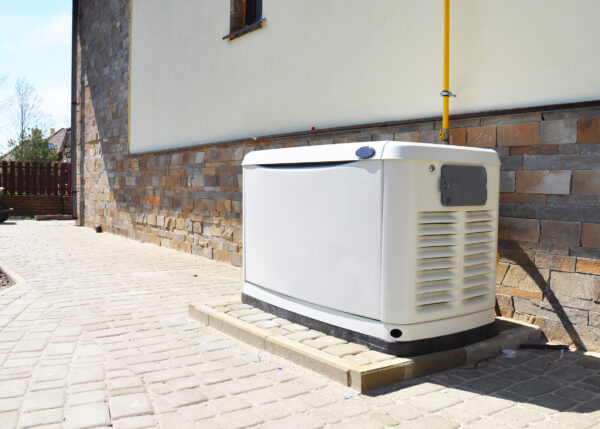As a company that has locations in Raleigh, Clayton, and Wilmington, we at CMC Service Experts know how unpredictable North Carolina weather can be, as with the hurricane-level storm we experienced last fall. Weather coming in off the coast affects our service areas at least once a year in a substantial way, often leaving many without power. You can never quite predict when a power outage will occur. A storm could suddenly hit, a car accident could interfere with a pole or transformer, a power company worker could make a mistake, or a limb could fall on wiring. There are many causes that can lead to an outage, but once your home is affected, all you can do is wait. You’re left without appliances, running water, lighting, heating and air conditioning, and many people rely on electricity to power their medical needs. When this happens, you need to have a plan in place to ensure you and your family can be well taken care of until power returns. One way to guarantee you’ll never be too inconvenienced is to have a backup generator.
A generator provides backup electricity to your home once the outage occurs. That means no more food spoiling in the fridge, no sitting in the dark, no rising temperatures in the summer or shivering in the winter. A generator allows you to continue more or less as normal until power is restored, so you and your family aren’t left struggling to figure out how to function in the meantime. Power outages occur more frequently than you think, and your home isn’t immune. To give you an idea of how many factors can interfere with your home’s power source, here are nine times you’ll be glad you have a backup generator to rely on.
- Lightning. Lightning is a force of nature that can’t be controlled, and lightning storms occur frequently in summer, increasing the risk of outage. Though precautions are taken as much as possible, lightning can still strike electrical equipment or trees that can interfere with lines or poles. This issue can often take a while for repair workers to find the source of and fix.
- Winter storms. Though North Carolina doesn’t see too much snow, we still face the risk of winter storms shutting down electricity. As snow and ice gather on power lines, the weight can quickly cause them to snap. Snow and ice also gather on tree limbs, which could result in those snapping and falling on lines. Repair workers have a more difficult time restoring power in this environment due to the cold and moisture involved, leaving you shivering at home.
- Hurricanes and tornadoes. As we saw last fall, extreme weather like this is not to be taken lightly. Hurricanes coming in off the coast can leave many homes and businesses without power for days, even weeks. A backup generator ensures that during this time, you aren’t as subject to the devastation as many homeowners, and you can even help neighbors.
- Wind. Wilmington is no stranger to what strong coastal winds can do. The bulk of wind damage is broken tree limbs that fall and dislocate power lines, which isn’t an easy job for repair specialists to fix.
- Earthquakes. While the North Carolina area doesn’t see a lot of earthquake activity, we’re not immune to it. A disaster like this can easily leave people without power for weeks, and that goes for businesses with goods and services we rely on as well as homes.
- Floods. North Carolina is, however, prone to flooding now and then. Flood waters or even an abundance of melting snow can damage above and underground electrical equipment, causing an outage. The unique issue with flooding is that it makes it difficult for repair crews to get to the problem to fix it, so even assessing the issue may not happen for days after the outage occurs.
- Auto accidents. Though unfortunate, accidents happen regularly, and vehicles can often hit power poles with enough impact to knock them over or cause damage. When this happens, the priority understandably will be on the victim and safely securing and clearing the scene before any work begins on outage issues.
- Blackouts. People today are using more electricity than ever to power their lives. When demand for power outweighs power companies’ ability to supply it, a blackout can occur indefinitely.
- Electrical system faults. Power lines wear out eventually due to a number of natural environmental factors, causing equipment failure. Relocating the lines underground where wear and tear is less likely can be costly, so it may take a while to either relocate lines or come up with a plan to repair above-ground lines once they expire. Regardless, you’ll be without power in the meantime.
A backup generator is an asset in an outage that lasts any length of time, keeping you and your family going in an uncertain time. CMC Service Experts has seen the advantages of generators firsthand, and we’re proud to be certified Generac generator installers. Click for more information about Generac generators and CMC Service Experts’s professional installation services so your household never has to be without power again.






